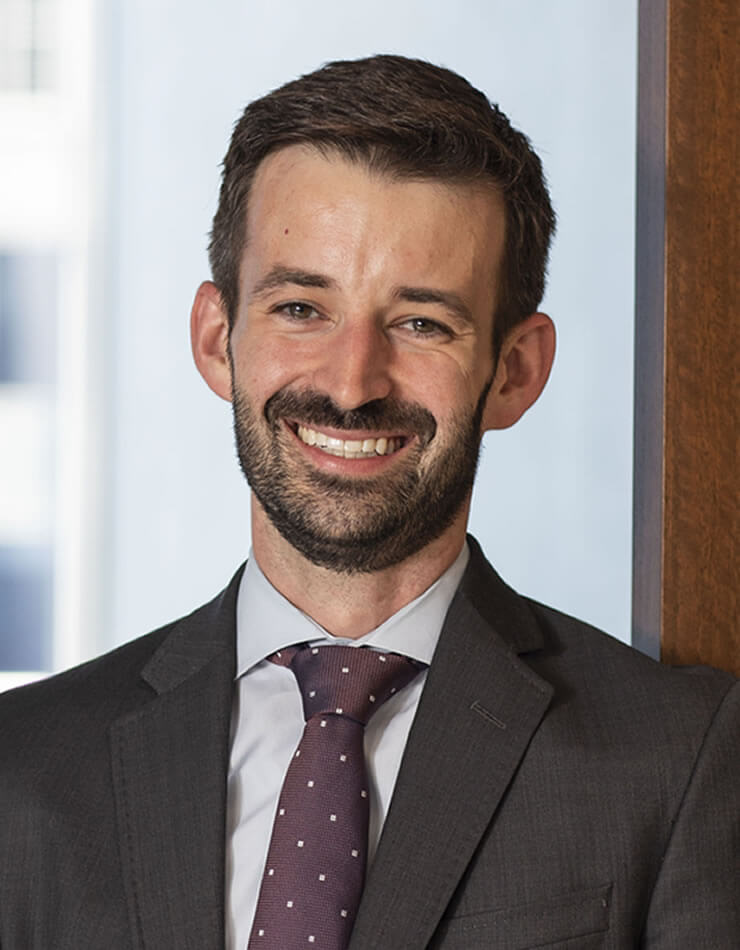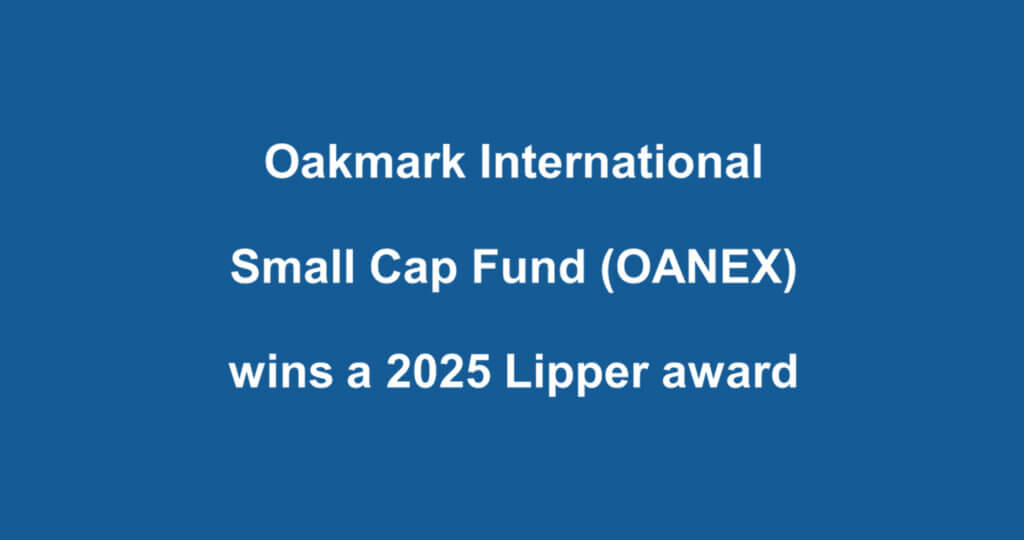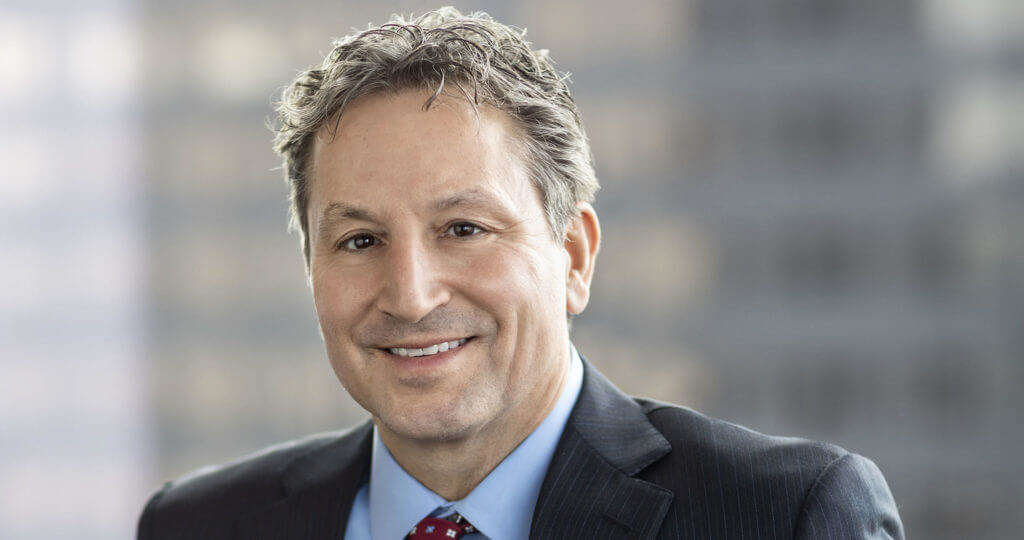Oakmark International Small Cap Fund – Investor Class
Average Annual Total Returns 12/31/18
Since Inception 11/01/95 8.18%
10-year 9.34%
5-year -1.01%
1-year -23.73%
3-month -17.20%
Net and Gross Expense Ratios as of 09/30/18 were 1.36%
Past performance is no guarantee of future results. The performance data quoted represents past performance. Current performance may be lower or higher than the performance data quoted. The investment return and principal value vary so that an investor’s shares when redeemed may be worth more or less than the original cost. To obtain the most recent month-end performance data, view it here.
Fellow shareholders,
We are not pleased to report that the Fund’s performance continued to decline during the fourth quarter. In our view, these returns were driven by prolonged macroeconomic fears, rather than concerns about the underlying quality of the companies we own. For the quarter ended December 31, 2018, the Oakmark International Small Cap Fund declined 17.2%, compared to the MSCI World ex U.S. Small Cap Index, which dropped 16.2% for the same period. For the year ended December 31, the Fund returned -23.7%, while the MSCI World ex U.S. Small Cap Index returned -18.1%. Since the Fund’s inception in November 1995, it has returned an average of 8.2% per year.
The top-performing stock in the Fund was Sarana Menara Nusantara, an investment company based in Indonesia that owns and operates telecommunication towers for wireless operators through its subsidiary Protelindo. Sarana’s price surge was fueled primarily by the Indonesian stock market rally in December. However, during the third quarter the company reported strong results with revenues up and the number of its telecommunication towers increasing. Even more importantly, Sarana’s non-tower revenues grew by 62% during the third quarter, including fiber optic cable (hanging) and VSAT (poles for satellite communication) configurations. Notably, tower fiberization has reached more than 2,200 kilometers built, of which 1,500 kilometers currently generate revenue. The company’s most impressive metric is that it now has 16,000 kilometers of fiber optic cable in its pipeline, up from 2,000 kilometers just three months ago.
The Fund’s largest detractor to performance for the quarter was Azimut Holding. Azimut is an Italian asset management company, based in Milan, with increasingly significant international operations in 16 countries. The company operates an integrated distribution and investment management model aimed primarily at private clients. During the quarter, weak financial markets weighed on the company’s investment performance, assets under management and performance fees. In addition, Azimut announced that CEO Sergio Albarelli would be leaving in January 2019, and former CEO, and now Chairman, Pietro Giuliani will lead the company until an internal replacement is named in the first half of 2019. During Albarelli’s two-year tenure, he helped grow and improve the profitability of the business outside of Italy and made investments in Azimut’s IT, risk management and compliance groups. Under new management, the company’s culture will likely return to its more entrepreneurial style, and we expect the company will increasingly focus on distribution productivity and investment performance. We like that Azimut’s management team and employees are focused on long-term value generation and that they are aligned with shareholder interests through their ownership of over 20% of the company’s shares (via the Timone trust). In addition, Azimut’s strong balance sheet and cash flow generation add to our confidence in the investment.
Due to weakened share prices during the quarter, we were able to reacquire two previous Fund holdings: Swiss-based Bucher Industries, a manufacturer of food processing machinery, vehicle and hydraulic components; and Kimberly-Clark de Mexico, the largest consumer paper goods company in Mexico. In addition, we added one new name to the Fund: Pirelli, a consumer tire manufacturer headquartered in Italy. Pirelli focuses on the premium segment of the market and its tires are used on some Ferrari, Aston Martin and Porsche models. During the quarter, we eliminated our position in Brunel International (Netherlands).
Geographically, we ended the quarter with approximately 15% of our holdings in Asia, 68% in Europe and the U.K., and 8% in Australasia. The remaining positions are 4% in North America (Canada) and 5% in Latin America (Mexico and Brazil).
We continue to believe both the Swiss franc and Norwegian krone are overvalued versus the U.S. dollar. As a result, we defensively hedged 18% of the Fund’s franc exposure and 34% of the krone exposure. During this year of volatility, we thank shareholders for their continued confidence and support. As we start 2019, we believe the portfolio consists of high-quality companies that will generate attractive returns in the years to come.
We remain committed to finding attractive, undervalued companies that are led by management teams who are dedicated to building shareholder value.
Wishing all of you a very happy and healthy 2019!
The securities mentioned above comprise the following percentages of the Oakmark International Small Cap Fund’s total net assets as of 12/31/18: Azimut Holding 3.4%, Brunel International 0%, Bucher Industries 0.7%, Kimberly-Clark de Mexico 0.7%, Pirelli 1.0% and Sarana Menara Nusantara 1.6%. Portfolio holdings are subject to change without notice and are not intended as recommendations of individual stocks.
The MSCI World ex USA Small Cap Index (Net) is designed to measure performance of small-cap stocks across 22 of 23 Developed Markets (excluding the United States). The index covers approximately 14% of the free float-adjusted market capitalization in each country. This benchmark calculates reinvested dividends net of withholding taxes. This index is unmanaged and investors cannot invest directly in this index.
The stocks of smaller companies often involve more risk than the stocks of larger companies. Stocks of small companies tend to be more volatile and have a smaller public market than stocks of larger companies. Small companies may have a shorter history of operations than larger companies, may not have as great an ability to raise additional capital and may have a less diversified product line, making them more susceptible to market pressure.
The percentages of hedge exposure for each foreign currency are calculated by dividing the market value of all same-currency forward contracts by the market value of the underlying equity exposure to that currency.
Investing in foreign securities presents risks that in some ways may be greater than U.S. investments. Those risks include: currency fluctuation; different regulation, accounting standards, trading practices and levels of available information; generally higher transaction costs; and political risks.
The discussion of the Fund’s investments and investment strategy (including current investment themes, the portfolio managers’ research and investment process, and portfolio characteristics) represents the Fund’s investments and the views of the portfolio managers and Harris Associates L.P., the Fund’s investment adviser, at the time of this letter, and are subject to change without notice.
All information provided is as of 12/31/2018 unless otherwise specified.








